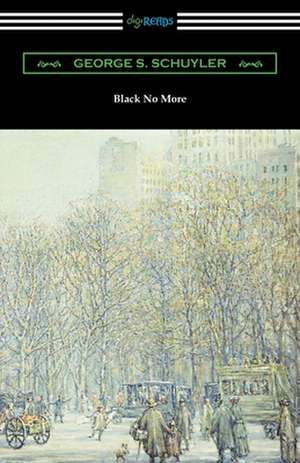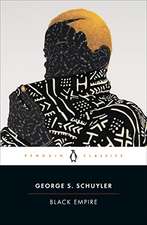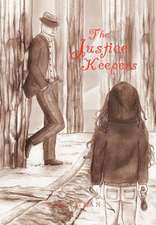Black No More
Autor George S Schuyleren Limba Engleză Paperback – 24 aug 2019 – vârsta de la 12 ani
| Toate formatele și edițiile | Preț | Express |
|---|---|---|
| Paperback (3) | 50.46 lei 22-36 zile | |
| Mint Editions – 15 aug 2022 | 50.46 lei 22-36 zile | |
| Mint Editions – 29 aug 2023 | 151.10 lei 22-36 zile | |
| Neeland Media – 24 aug 2019 | 59.99 lei 43-57 zile | |
| Hardback (1) | 103.48 lei 22-36 zile | |
| Mint Editions – 16 aug 2022 | 103.48 lei 22-36 zile |
Preț: 59.99 lei
Nou
Puncte Express: 90
Preț estimativ în valută:
11.48€ • 11.92$ • 9.57£
11.48€ • 11.92$ • 9.57£
Carte tipărită la comandă
Livrare economică 24 martie-07 aprilie
Preluare comenzi: 021 569.72.76
Specificații
ISBN-13: 9781420963540
ISBN-10: 1420963546
Pagini: 122
Dimensiuni: 141 x 213 x 10 mm
Greutate: 0.16 kg
Editura: Neeland Media
ISBN-10: 1420963546
Pagini: 122
Dimensiuni: 141 x 213 x 10 mm
Greutate: 0.16 kg
Editura: Neeland Media
Cuprins
Preface
Chapter One
Chapter Two
Chapter Three
Chapter Four
Chapter Five
Chapter Six
Chapter Seven
Chapter Eight
Chapter Nine
Chapter Ten
Chapter Eleven
Chapter Twelve
Chapter Thirteen
Chapter One
Chapter Two
Chapter Three
Chapter Four
Chapter Five
Chapter Six
Chapter Seven
Chapter Eight
Chapter Nine
Chapter Ten
Chapter Eleven
Chapter Twelve
Chapter Thirteen
Notă biografică
George S. Schuyler (1895 - 1977) was an author, journalist, social commentator and somewhat controversial figure. Born in Providence, Rhode Island, Schuyler¿s formative years were shaped by his time in the U.S. military. Enlisting at age 17, Schuyler rose to the title of First Lieutenant before going AWOL due to a racist encounter with a Greek immigrant. Sentenced to five years for the abandonment, Schulyer was released after less than a year for being a model prisoner. In the aftermath of his release, he lived at the Phillis Wheatley Hotel in New York City, coming to learn the teachings of Black nationalist, Marcus Garvey. Not fully convinced of Garvey¿s teachings, Schuyler would separate himself from both Garveyism and socialism, contributing articles to the American Mercury and embracing capitalism. Embarking on a career in journalism, Schuyler would find success and acknowledgement for his editorial skills as he took on the role of Chief Editorial Writer at the Courier in 1926. That same year he would pen a controversial piece, ¿The Negro-Art Hokum" for The Nation which¿combined with his advocacy for capitalism¿further alienated himself from his contemporaries. The article, which argued that art should not be segregated by race and that Black artist had no true style of their own, would inspire Langston Hughes¿ famous, ¿The Negro and The Racial Mountain.¿ Five years after this, Schuyler would try his hand at a long fiction form, producing notable novels such as Slaves Today (1931), Black No More (1931), and Black Empire (1936 - 1938); and while Schuyler would continue to produce work up until the point of his death, it was his public and expilicit conservatism and opposition to the Civil Rights Movement of the 1960s-70s that would push both he and his literary work into obscurity. At the time of his death, his legacy and talent as a writer were so overshadowed by his politics that no one within Black circles wanted to interact with his work at all. Despite this, Schuyler produced some of the first satires by a Black writer and addressed intra-community issues at a time when most Black authors appealed solely to the middle-class.



















